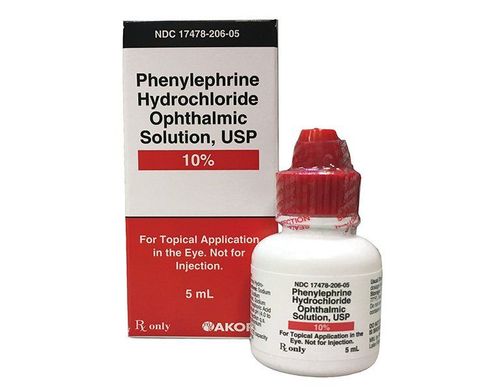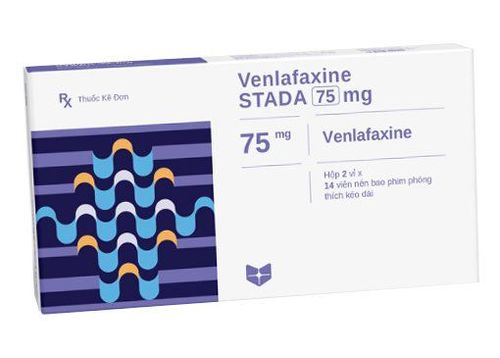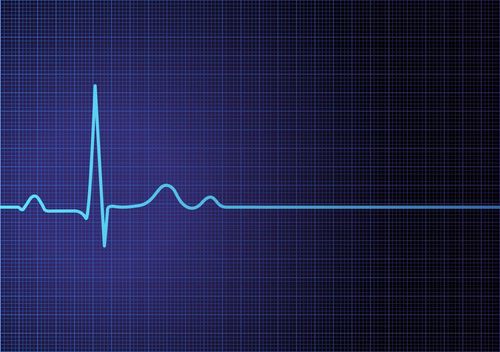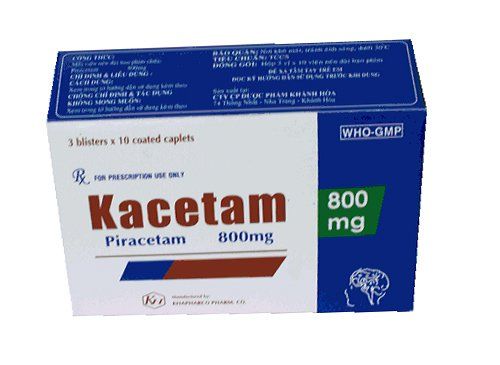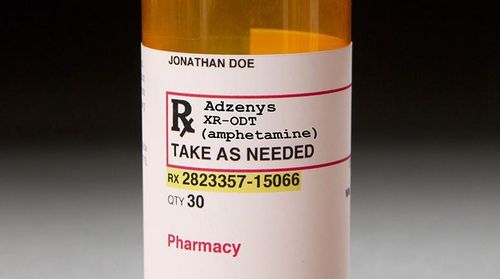This is an automatically translated article.
Sympathomimetic drugs are drugs that act on the autonomic nervous system. There are many different classes of sympathomimetic drugs and their effects vary.1. What are sympathomimetic drugs?
The autonomic nervous system, also known as the active nervous system, controls involuntary movements such as on the heart, respiration, smooth muscles,...According to the structure and physiological function of the autonomic nervous system divided into sympathetic and parasympathetic nervous systems. Sympathomimetic drugs are drugs that increase the activity of the sympathetic nervous system. However, it is not divided according to the structure and physiology of the autonomic nervous system that does not fully describe the effects of the drugs.
Therefore, in a more reasonable way when using drugs, from a pharmacological point of view, people divide the autonomic nervous system into 2 systems:
The system that reacts with Acetylcholine, called the Cholinergic system (including sympathetic ganglia, parasympathetic; postganglionic parasympathetic; striated motor plates; some regions of the central nervous system). This system acts on both the sympathetic and parasympathetic systems. The system that responds to adrenaline is called the adrenergic system (consisting only of the postganglionic sympathetic nervous system). The adrenergic system acts only on the sympathetic system.
2. Sympathomimetic drugs
As we see in the previous section, drugs of the Adrenergic system have a major effect on the sympathetic system. This group of drugs is divided into two classes: Adrenergic stimulants and Adrenergic blockers (which are sympathomimetic drugs).In which, the group of drugs that stimulate the Adrenergic system, or direct sympathomimetic, is a group of drugs that stimulate directly or indirectly on receptors of the adrenergic system, thereby increasing the amount of catecholamines in the nervous system's synapses. adrenergic. Adrenergic receptors are divided into two types, alpha and beta. Sympathomimetic drugs are divided into groups including:
Alpha and beta-adrenergic stimulants: such as Adrenalin, Noradrenalin, Dopamine. Direct α1-adrenergic stimulants: metaraminol, Phenylephrine, Heptaminol. and direct α2-adrenergic stimulation: Methyldopa. Direct β-adrenergic stimulants Indirect stimulants of the adrenergic system: Ephedrine, Amphetamine.
2.1 Alpha and beta-adrenergic stimulants
Epinephrine or AdrenalinThis is a sympathomimetic drug commonly used in the emergency of anaphylaxis or sudden cardiac arrest and used topically to stop bleeding.
Endogenous origin: Adrenalin, also known as Epinephrine, is secreted in many places such as the posterior apical fibers of the sympathetic ganglia, the central nervous system, but most often the adrenal medulla.
Adrenaline is used as a drug which is extracted from the adrenal medulla of animals and then chemically synthesized. Adrenaline is used in medicine as a class A toxic drug.
Effects of Adrenalin: Acting on the sympathetic nervous system, the drug stimulates both alpha and beta-adrenergic receptors, but the effect on beta receptors is stronger. The effects of adrenaline are complex, similar to those of sympathetic stimulation. Manifestations of the effects of Adrenalin on organs and glands are as follows:
On the eye: Adrenalin dilates the pupil due to its contraction effect on the iris ray muscle, leading to pressure on the ocular drainage tube, causing the condition. increased intraocular pressure. On the heart: The drug stimulates beta-1 receptors in the heart, making the heart beat faster, at the same time increasing the force of myocardial contractility, increasing cardiac output, thereby increasing the work of the heart and increasing the oxygen consumption of the heart. Therefore, if used in high doses, it can cause cardiac arrhythmias. On vessels: Adrenalin stimulates alpha-1 receptors causing vasoconstriction in some areas such as skin vessels and visceral vessels. It stimulates beta-2 receptors, causing vasodilation in certain areas such as the brain, pulmonary, coronary, and blood vessels to muscles. On blood pressure: Adrenaline increases systolic blood pressure, has little effect on diastolic blood pressure. As a result, mean blood pressure increased only slightly. One thing to be particularly aware of is that adrenaline can also cause a reflex drop in blood pressure. Respiratory: Adrenaline causes mild respiratory stimulation, relaxes bronchial smooth muscle and reduces mucosal edema. Therefore, it also works to relieve asthma attacks. However, it is rarely used today because of many unwanted effects due to beta-1 stimulation. On the digestive system: The drug has the effect of relaxing the digestive smooth muscle, reducing the secretion of digestive juices. On the urinary system: It has the effect of reducing blood flow to the kidneys and affecting the glomerular filtration rate, relaxing smooth muscle but contraction of the bladder sphincter slows urine excretion, which can cause urinary retention. On the exocrine glands: Reduce secretion of exocrine secretions such as saliva, gastric juice, intestinal juices, tears,... On metabolism: Has the effect of reducing insulin secretion (the only hormone that causes a decrease in blood sugar), at the same time increase glucagon secretion and accelerate the breakdown of glycogen, so it increases blood glucose. Besides, the drug has the effect of increasing basal metabolism by 20-30%, increasing oxygen consumption, increasing blood cholesterol, increasing production of pituitary hormone (ACTH) and adrenal medullary gland cortisol. On the central nervous system: At therapeutic doses, adrenaline very little penetrates the blood-brain barrier, so it hardly affects the central nervous system. When used in high doses, the drug stimulates the central nervous system, creating feelings of nervousness, restlessness, irritability, palpitations, nervousness, tremors. Noradrenalin
Noradrenalin has the same effects on the body as Adrenalin, except that Noradrenalin causes strong vasoconstriction, so it is not administered subcutaneously and intramuscularly, only by injection and intravenous infusion.
Effects of Noradrenalin:
On the central nervous system: Similar to adrenaline. On the autonomic nervous system: The drug stimulates both alpha and beta-adrenergic receptors, but the effect on the beta system is very weak, so in fact it can be considered as acting only on the alpha system. On the circulatory system: Noradrenalin has less effect on the heart (because it has little effect on the beta system), but causes more vasoconstriction than adrenaline (due to its action mainly on alpha receptors). Causes vasoconstriction of almost all blood vessels, coronary vasoconstriction, increases peripheral resistance, increases both systolic blood pressure, diastolic blood pressure, increases in mean blood pressure and does not cause a compensatory hypotensive reflex. Other effects are similar to adrenaline but weaker. The drug is used in the following cases: Hypotension, cardiovascular collapse due to causes such as trauma, infection, overdose of ganglion blocker drugs, overdose of parasympathomimetic drugs,.... In combination with local anesthetics. to prolong the effect of the anesthetic. Hemostasis of mucous membranes.
Dopamine
Dopamine is a precursor to noradrenaline and is a mediator of the dopaminergic system. Dopamine has very little in the sympathetic nerve endings, but is concentrated mainly in the central nervous system and it plays an important role in Parkinson's disease.
Effects of Dopamine: Effects on the sympathetic system, but mainly on the heart, pulse and blood pressure. The effect of Dopamine depends on the dose:
Low dose: The drug acts mainly on the D1 receptor, causing dilation of coronary vessels, visceral vessels, especially renal vessels, increasing the glomerular filtration rate and increasing renal flow. Moderate dose: Acts primarily on beta-1 receptors, thereby increasing both heart rate and contractility. High doses: effects on alpha-1 cause vasoconstriction, increase blood pressure. Dopamine is mainly indicated for use in shock of all kinds, especially shock accompanied by hypovolemia or anuria.
2.2 Preferential stimulant drugs on alpha 1 . receptors
Metaraminol (Aramin):Effect: Stronger and longer vasoconstriction than Adrenalin, possibly because this drug stimulates the release of Noradrenalin, not causing secondary vasodilation. Increases the force of contraction of the heart muscle, less changes in heart rate. Does not stimulate the central nervous system, does not affect metabolism.
Indications: Used to increase blood pressure in cases of sudden hypotension such as in case of trauma, infection, shock).
Phenylephrine (neosynephrine)
Preferential action on α1 receptors. The vasoconstrictor effect on blood pressure is prolonged, but not as strong as Noadrenalin. Does not affect heart rate, does not stimulate the central nervous system, does not increase blood glucose.
Indications: similar to noradrenalin
2.3 Beta-adrenergic receptor stimulants
Dobutamine (Dobutrex)Effects:
Bronchodilator effect: Dilates bronchial branches, especially small bronchi with many beta2-adrenergic receptors. When this receptor is stimulated, it increases the synthesis of cAMP in the smooth muscle membrane of the bronchi, causing strong bronchodilation. Vasodilator effect: Also due to Rp beta2-adrenergic stimulation effect, thereby causing vasodilation of muscle vessels, cerebral vessels, coronary vessels, hepatic vessels, intestinal vessels... thus causing rapid and strong lowering of blood pressure. Cardiac effects: The major myocardial effects are with beta1-adrenergic Rp. When stimulating these receptors (Rp) will increase frequency, increase contractility, increase conduction speed in the myocardium, increase myocardial perfusion. Effects on uterine smooth muscle: beta2-adrenergic stimulants relax uterine smooth muscle, reduce spasms, can be used to treat threatened miscarriage. Indications: Frequent bradycardia; complete atrioventricular block (A-V block III); bronchial asthma (mild and moderate severity); arrhythmia due to myocardial infarction.
2.4 Indirect sympathomimetic drugs
Ephedrine hydrochlorideIs an alkaloid from some species of Ephedra (Ephedra sinica, E. intermedia, E. equisetina, E. vulgaris, E. distachya,... ), family Ephedraceae.
Effects:
Stimulating effect on alpha-adrenergic and beta-adrenergic Rp but this effect is weak, indirect effect increases catecholamine release from storage, partly it has direct effect on Rp . Cardiovascular: The effect is slow and 100 times weaker than norepinephrine, but it lasts a long time, helping to increase blood pressure gradually and for a long time. Therefore, it is used to raise blood pressure. However, if used many times in a row, the effect of increasing blood pressure will gradually decrease (the phenomenon of fast drug addiction) MAO (monoamine oxidase) inhibitory effect: Helps stabilize catecholamines in the sympathetic postganglionic region. On the respiratory system: Has a bronchodilator effect, stimulates the respiratory center in the medulla oblongata,... On the central nervous system: slightly excites the central nervous system. High doses stimulate the central nervous system, causing insomnia, restlessness, tremor, increased respiration,... Indications: During spinal anesthesia, intoxication with CNS depressants (ethanol, morphine, barbiturates,...), used to raise blood pressure and stimulate respiration,...
Amphetamine
This is a central nervous system stimulant. When used in small doses, it has a stimulating effect on the cerebral cortex, increasing the ability to work mentally, ... However, because this drug is often abused, it can easily cause addiction and can adversely affect the brain. many other organs such as the nervous system, easy to cause hallucinations, damage to the heart, liver, genitals... Amphetamine is considered a synthetic drug, so it is currently banned from medical use.
The sympathomimetic drugs are indicated in some cases of cardiovascular disease, respiratory disease, ... some are used to treat in emergency cases.
Please dial HOTLINE for more information or register for an appointment HERE. Download MyVinmec app to make appointments faster and to manage your bookings easily.




